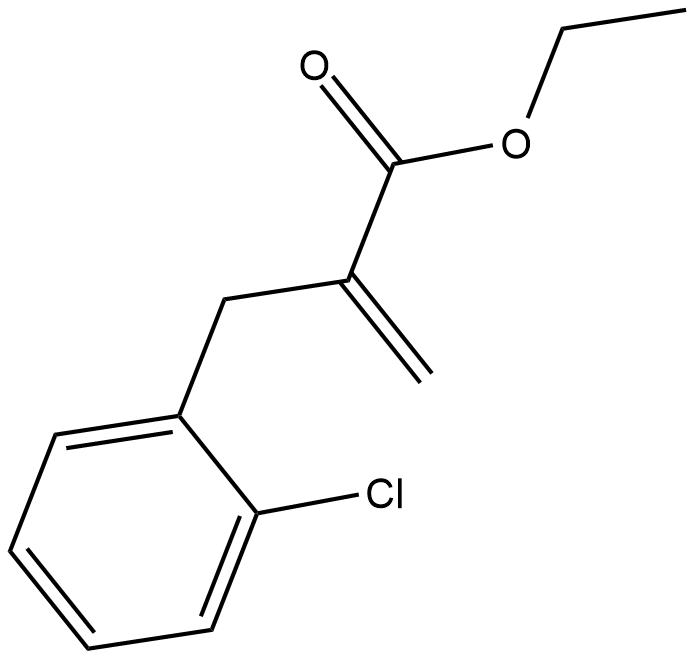INF39 |
| Catalog No.GC19201 |
INF39 is an irreversible and noncytotoxic NLRP3 inhibitor.
Products are for research use only. Not for human use. We do not sell to patients.

Cas No.: 866028-26-4
Sample solution is provided at 25 µL, 10mM.
INF39 is an irreversible and noncytotoxic NLRP3 inhibitor.
INF39 is able to significantly inhibit ATP- and nigericin-induced IL-1β release at 10 uM. INF39 reduces caspase-1 activation and pyroptosis in the macrophages. INF39 can block not only NLRP3 activation but also the NF-κB pathway. INF39 potentially reacts with Cys-SH residues in the active site of cysteine protease caspase-1, but does not directly target caspase-1 activity. INF39 is able to reduce the steady state (or basal) BRET signal of NLRP3 without affecting the viability of cells, meaning that it can interfere with the basal NLRP3 conformation. INF39 does not block the initial conformational changes suffered by NLRP3 upon sensing the decrease of intracellular K+; however, it affects a second step of NLRP3 conformational change that could be related with the ATPase activity of the receptor and be independent of the decrease of intracellular K+. INF39 reaches the intestinal epithelium without undergoing chemical modifications. After absorption into epithelial cells, it is likely to act locally at the mucosal epithelial level[1].
Oral administration of INF39 reduces systemic and colonic inflammation in rats treated with 2,4- dinitrobenzenesulfonic acid. Significant increments of body weight are observed in inflamed rats under treatment with INF39 (12.5, 25, and 50 mg/ kg). Treatment with DNBS results in a significant increment of spleen weight (+39.3%). Such an increase is significantly reduced by administration of INF39 (+2.2, +4.3 and +4.8% at 12.5, 25, 50 mg/kg, respectively). The inhibition of NLRP3 inflammasome complex with INF39 dose-dependently attenuates the decrease in colonic length (-19, -13 and -8% at 12.5, 25, 50 mg/kg, respectively). Rats treated with INF39 displays a significant reduction of macroscopic damage score (4.7 at 12.5 mg/kg, 3.1 at 25 mg/kg, and 2.8 at 50 mg/kg). Oral administration of INF39 reduces colonic myeloperoxidase, IL-1β, and TNF Levels in DNBS-treated rats[1].
References:
[1]. Cocco M, et al. Development of an Acrylate Derivative Targeting the NLRP3 Inflammasome for the Treatment of Inflammatory Bowel Disease.J Med Chem. 2017 May 11;60(9):3656-3671.
Average Rating: 5 (Based on Reviews and 16 reference(s) in Google Scholar.)
GLPBIO products are for RESEARCH USE ONLY. Please make sure your review or question is research based.
Required fields are marked with *




















